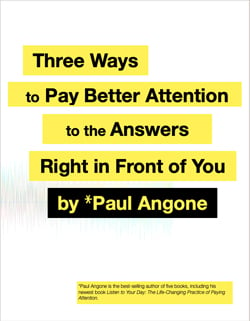Are Millennials and Gen Y really losing their faith?
Well, yes.
If you’ve been reading reports the last two years, Gen Y is running away from their faith like a 13-year-old who just walked in on his parents doing the horizontal-hula.
As reported in the Pew Study Religion Among the Millennials: “One-in-four members of the Millennial generation…are unaffiliated with any particular faith.”
Gen Y, those born roughly between 1980 – 2000, are stating they are “un-religious” at a 6% increase from Gen X when polled at the same age. A sharp increase.
Drew Dyck when introducing his book, Generation Ex-Christian writes, “Young people aren’t walking away from the church, they’re sprinting…Barna Group estimates that 80 percent of those reared in the church will be “disengaged” by the time they are 29 years old.”
All those shiny-faced kids who flew off the blob at Christian camp or put their Bible on the cafeteria table hoping to spark an evangelistic-opportunity, shoved their Bibles inside a drawer years ago and sold the desk at a yard sale.
Why? And what might bring them back….
Why are Millennials and Gen Y Walking Away from their Faith?
1. Deep Desire for Authenticity
The same teens that were popping in Christian CD’s like DC Talk and Newsboys are now today’s twentysomethings lining their playlists with Johnny Cash, Mumford and Sons, Sufjan Stevens, and Bon Iver. Stark, driving, honest music that’s wrestling with the question without always giving the answer.
Gen Y and Millennials have an undeniable desire for authenticity. And while Gen Y might not always be able to tell you what “authentic” is, they for sure put their finger on un-authentic — our generations’ BS Radar fine-tuned as any.
As Christian Piatt writes in Seven Reasons Why Young Adults Quit Church, “We’re Skeptical: We’re exposed to more ad impressions in a month today than any other previous generation experienced in a lifetime.”
Unfortunately, I’m not sure the majority of churches and faith traditions are confused as leading experts in authenticity. When church and faith becomes nothing more than a glorified marketing campaign, Gen Y will switch the channel.
2. Re-definition of faith is a part of Emerging Adulthood
First, what is Emerging Adulthood? It’s a theory first coined by Jeffrey Jensen Arnett, Ph.D as an ambiguous transition period between adolescence to adult that a majority of twentysomethings in Westernized cultures go through.
A revaluation of faith and beliefs is a central part of emerging adulthood (Shuster and Mongetta, 2009). Emerging adults are less likely to be involved in religious institutions and disengage from the faith of their childhood and family background (Barry and Nelson, 2008; Arnett and Jensen, 2002).
As we leave college and begin the March of the Adult, our expectations of the crazy-successful, magically-perfect life is blown up like a hand grenade in a Hot Pocket. ‘
And with the explosion goes little things like our identity, dreams, friendships, faith, stability — you name it. Everything that can be blown up, will be. Something I experienced in my own emerging adult years — my faith with it.
It took me a few years to pick up the pieces…
In part two tomorrow on Why Millennials and Gen Y are Losing Their Faith, I’ll tell a little more of my own story and what three things helped bring me back to faith.
Why do you think Gen Y is walking away from their faith?
_
Photo Credit: bejealousofme via Creative Commons
Sources:
Arnett, J.J. (2002). A Congregation of one: Individualized religious beliefs among emerging adults. Journal of Adolescent Research, 17(5), 451-467
Barry, C and Nelson, L (2008). The role of religious beliefs and practices on emerging adults’ perceived competencies, perceived importance ratings, and global self-worth . International Journal of Behavioral Development, 32(6), 509-521.
Shuster, M and Mongetta, J (2009). The influence of a small Christian university’s culture on selected characteristics of emerging adulthood. Journal of Research on Christian Education, 18, 206–234.








Honestly, I left church behind because I finally reached a breaking point where the message was just too negative for me to swallow anymore. After a while, the constant refrain from pastors, friends and devotional books that “I am broken and lowly and need Jesus” just started to sound like “I’m a piece of trash with no intrinsic worth and will never do anything right.” The marketing machine was so intent on convincing me that I am nothing without their product, that the product itself lost all value when I rejected the premise that I am worthless and decided that I am enough and that I’m worthy of at least my own love and respect. When you finally gather your strength to stand on your own two feet, it’s a little tough to take when someone tells you to fall to your knees again.
Not everybody feels this way and I’m glad my friends are still in healthy and loving relationship with their creator, somewhere along the way mine just became toxic and hurtful.
Thank you Missaralee for sharing your experience. Definitely an atrocity when faith, which is supposed to be incredibly redemptive and bring forth life, does the exact opposite.
“When you finally gather your strength to stand on your own two feet, it’s a little tough to take when someone tells you to fall to your knees again”.
Absolutely true!!!!!
Yeah definitely a paradox and can be confusing and painful.
But I’ve definitely found in my life that in those seasons where I was stretched, and I broke, I somehow became more whole.
For those of you out there who agree with the crux of this article, I would urge you to visit my website at http://seraphimcalls.weebly.com and check out my new book series, Seraphim Calls. It is a five-book series that offers three things the current accepted religions do not offer:
1) Scientific explanations to questions such as where we come from, how we got here, why we’re here, and what happens to us when we die
2) A more modern-day story that relates the same messages as the currently accepted religious texts
3) A more entertaining and believable story.
If you can’t relate to a story, how are you suppose to believe it? I think that’s half the difficulty right there. I also agree with Missaralee above. All the major religious houses have become more like businesses instead of spiritual places of worship. They all seem to be out to get your money so they can add a fast food restaurant to their institution or so they can build a larger building so they can get on television, etc. It’s just too bad because, to my own way of thinking, it’s important to have something to believe in. Otherwise, what’s the point?
Anyway, I hope you will check out the website and the books and that they will offer the hope to you I believe they will offer.
Sincerely,
KT Morrissey
Not necessarily! This generation is not hopeless. With God all things are possible! God can change everything in a second. He’s capable of anything. Revivals have always been born in spite of adversity. Every revival has had it’s critics and doubters, but no one can deny the powerful move of the Holy Spirit of the Almighty God when it comes. I am part of Generation Y, probably the oldest of that generation at 32, but I am seeing more and more young people becoming on fire for God. Young people want to find the truth more than ever, and they are sick of the lies that our society tells them just like I was. They want to find out the truth for themselves, and experience God for themselves, not just blindly believe what anyone else tells them. I started a community page on facebook for believers in my generation and it is starting to really blossom. I had a vision of people in my generation that I know who aren’t saved falling forward on their faces and falling backwards into the arms of God with these heavenly, blissful smiles on their faces. I saw some of the ones I never would have thought would turn to God were some of the most blissful faces. God bless this generation, and to God be the glory forever!